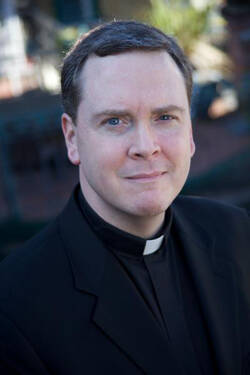‘War Without End,” Bishop Robert W. McElroy’s spot-on and heartfelt account of the conflict in Afghanistan, was undoubtedly among the finest articles we’ve published in recent years. It just so happens that the Catholic Press Association agreed, including “War Without End” on its short list of the best analytical writing of 2011.
You can understand, then, why I sought out Bishop McElroy at the annual meeting of the U.S. Conference of Catholic Bishops last year in Baltimore and asked him directly when he was going to write again for America. Months went by, very busy months for the Archdiocese of San Francisco, where Bishop McElroy serves as an auxiliary. I began to think that one of our favorite authors just might not have the time to put pen to paper—or fingers to keyboard—these days.
I was therefore delighted when the bishop called my office a few weeks back and said he was sending along a manuscript. I was even more impressed when I read it. Bishop McElroy speaks to us in this week’s pages with clarity and passion: “If the Catholic Church is truly to be a ‘church for the poor’ in the United States, it must elevate the issue of poverty to the very top of its political agenda, establishing poverty alongside abortion as the pre-eminent moral issues the Catholic community pursues at this moment in the church’s history.”
Bishop McElroy’s prose is clear enough; he doesn’t really need me to interpret it for you. It’s worth pointing out, though, what he is not saying. He is not saying that we shouldn’t focus on abortion or other intrinsically evil acts; he is simply suggesting that the structural sin of poverty is also a life and death issue for many—too many—of our fellow citizens.
In many ways, these comments sound a lot like some comments by the Bishop of Rome that recently appeared in these pages: “We cannot insist only on issues related to abortion, gay marriage and the use of contraceptive methods. This is not possible.... We have to find a new balance; otherwise even the moral edifice of the church is likely to fall like a house of cards, losing the freshness and fragrance of the Gospel.”
Those words from Pope Francis, indeed the entire interview we were pleased to co-publish, have elicited a variety of reactions, from Catholics and non-Catholics, within the United States and abroad. Cardinal Donald W. Wuerl of Washington leads off the responses in this issue by praising Francis’ new genre of papal communication, one that the cardinal likens to an “embodiment of [the pope’s] many invitations to ‘go out’ to people, to build bridges, not walls, and establish a dialogue with all the people.” In other words, Pope Francis teaches by doing and encourages us to do the same.
Elsewhere, Bishop Blase J. Cupich endorses Michael Gerson’s description of the interview as an “extemporaneous encyclical,” and Meghan J. Clark recounts how the pope is “continuously pushing us” beyond our provincial boundaries, in order “to encounter the one human family.” The Rev. Robert P. Imbelli, meanwhile, poses some respectful, critical questions, which one imagines this pope would eagerly welcome, and Stephen P. White cautions us against binary readings of the pope’s words.
For my part, recent events confirm my suspicion that we are experiencing a kairos moment in the life of the church that began with Pope Benedict’s humble and holy final act, a moment in which the Holy Spirit is at work in a powerful way. Francis is a part of that, but he is only one small part of it. The Holy Spirit is speaking to you and me as well, and the Spirit’s first words to us must be the watchwords for us all: “Be not afraid.”








